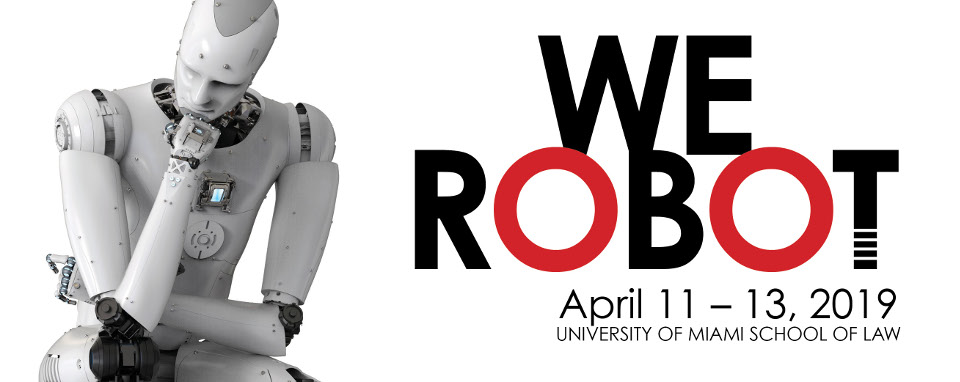
Robin Murphy
Kevin Bankston will lead a discussion of Robin Murphy‘s Emerging Legal and Policy Trends in Recent Robot Science Fiction on Saturday, April 13, at 8:30 a.m. at #werobot 2019.
Science fiction has a long history of predicting technological advances and reflecting societal concerns or expectations. This paper examines popular print science fiction for the past five years (2013-2018) where robots were essential to the fictional narrative and the plot depended on a legal or policy issue related to robots. Five books and one novella series were identified: Head On (Scalzi), The Robots of Gotham (McAulty), Autonomous (Newitz), The Murderbot Diaries (Wells), A Closed and Common Orbit (Chambers), and Provenance (Leckie).
An analysis of these works of fiction shows four new concerns about robots that are emerging in the public consciousness.

Kevin Bankston
One is that robots will enable false identities through telepresence and that people will be vulnerable to deception. A second concern is under what conditions would sentient robots be granted the rights of citizenship or at least protection. A third is that outlawing artificial intelligence for robots will not protect the citizenry from undesirable uses but will instead put a country at risk from other countries that continue to embrace AI. The fourth concern is that ineffectual or non-existent product liability laws will lead to sloppy software engineering that produces unintended dangerous robot behaviors and increases cyber vulnerabilities.

